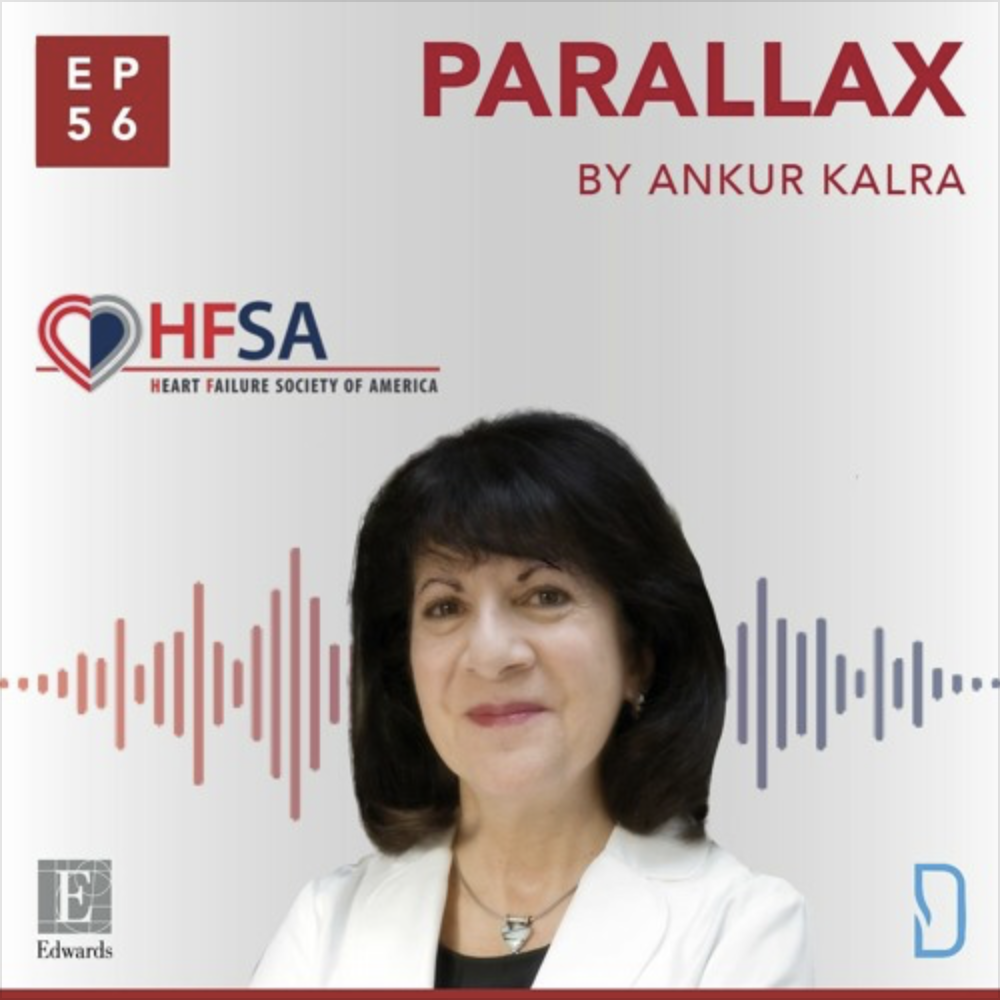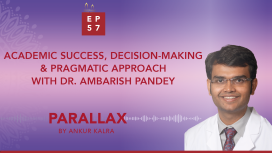
This week’s Parallax in collaboration with the Heart Failure Society of America (HFSA) explores the many ways organisations can embrace the needs of a diverse community and create a culture that can react to the realities of patientcare.
Host Dr Ankur Kalra’s guest is Dr Nancy M. Albert, Immediate Past President of HFSA and Associate Chief Nursing Officer of the Office of Research and Innovation at the Cleveland Clinic.
In this episode, Dr Albert reflects on the society’s work to cater to the needs of its multidisciplinary members. Dr Kalra asks Dr Albert about HFSA vision statement and the different factors that were considered to put words into actions. They discuss the importance of recruiting a diverse group of volunteers. Dr Albert shares her experiences as a mentor and her tips on how to foster talent, including nurses and other advanced practice providers. How can people get involved with HFSA? What mentorship opportunities are available? How has HFSA fostered deeper involvement of early career members? What is Dr Albert’s message to our listeners?
Questions and comments can be sent to “podcast@radcliffe-group.com” and may be answered by Ankur in the next episode. Guest @nancy_m_albert hosted by @AnkurKalraMD. Produced by @RadcliffeCARDIO.

Brought to you by Edwards: www.edwardstavr.com





What is the Global Cardiology University project? How does Dr Anavekar encourage trainees to re-examine their role in patient care? What is his advice to our listeners?

As Dr Kalra asks Dr Rao about the ways in which early career faculty members can get involved with the organization at a state level. Dr Rao shares his insider tips and highlights key events where individuals can further their participation.
How can you get involved with your local ACC chapter? How can you improve your leadership skills? What is Dr Rao’s advice for our listeners?

He explains how the complexity of nutrition and the compounds generated by the gut microbiome can impact our health. We learn more about three compounds produced by our gut microbiome that have a strong connection with heart disease.
Through this conversation, Dr Vuyisich invites us to reframe our approach to nutrition and prevention as a question of food education and data-driven science.





